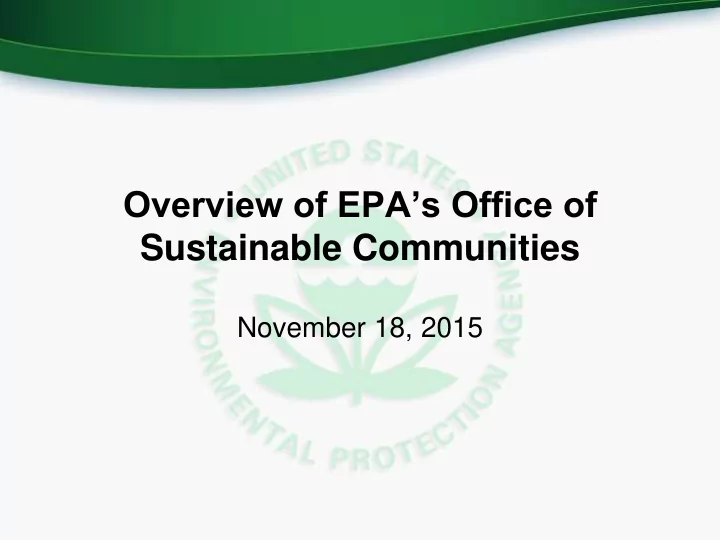

Overview of EPA’s Office of Sustainable Communities November 18, 2015
EPA’s Office of Sustainable Communities • Brief History – EPA Smart Growth Program founded in 1996 • Why does EPA work on Smart Growth? – Because where and how we build affects our land, air, and water. – Billions are invested in building communities and we can help make state and local development decisions better for public health and the environment – Many communities want better development outcomes but need help overcoming barriers
How we do our work • Education and outreach • Publications, Webinars, National Smart Growth Conference • Developing tools and providing technical assistance • Modernizing codes, standards and rules • Green Building Standards, Neighborhood Design, Street Design Guidelines • Federal partnerships • Local Foods Local Places, Partnership for Sustainable Communities • Supporting the work of other EPA programs Videos Showing Examples of Our Work http://www2.epa.gov/smartgrowth/smart-growth-webinars-videos-and-podcasts#epaTAP
Tools and Technical Assistance • Technical Assistance to state and local governments – approximately 60% of our FY15 work plan. • Multiple approaches: • Smart Growth Implementation Assistance Emerging and complex issues • Governors Institute on Community Design State policy change • Greening Americas Capitals High visibility demonstration projects • Building Blocks for Sustainable Communities Tools to address common barriers • Joint Technical Assistance with other agencies (FEMA, USDA, ARC, SC2, GSA) Leveraging and changing practices
What is unique about our approach? • Provide access to national experts through cost effective programs with minimal application barriers • Use assistance programs to develop tools that can be used by others • We only work in places that have asked for help • Our programs and tools attract significant investment from other agencies
Recommend
More recommend